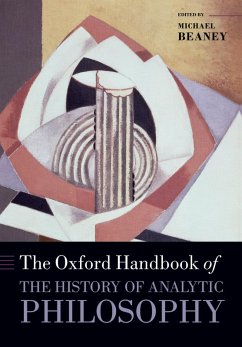During the course of the twentieth century, analytic philosophy developed into the dominant philosophical tradition in the English-speaking world. In the last two decades, it has become increasingly influential in the rest of the world, from continental Europe to Latin America and Asia. At the same time there has been deepening interest in the origins and history of analytic philosophy, as analytic philosophers examine the foundations of their tradition and question many of the assumptions of their predecessors. This has led to greater historical self-consciousness among analytic philosophers and more scholarly work on the historical contexts in which analytic philosophy developed. This historical turn in analytic philosophy has been gathering pace since the 1990s, and the present volume is the most comprehensive collection of essays to date on the history of analytic philosophy. It contains state-of-the-art contributions from many of the leading scholars in the field, all of the contributions specially commissioned. The introductory essays discuss the nature and historiography of analytic philosophy, accompanied by a detailed chronology and bibliography. Part One elucidates the origins of analytic philosophy, with special emphasis on the work of Frege, Russell, Moore, and Wittgenstein. Part Two explains the development of analytic philosophy, from Oxford realism and logical positivism to the most recent work in analytic philosophy, and includes essays on ethics, aesthetics, and political philosophy as well as on the areas usually seen as central to analytic philosophy, such as philosophy of language and mind. Part Three explores certain key themes in the history of analytic philosophy.
Dieser Download kann aus rechtlichen Gründen nur mit Rechnungsadresse in A, B, BG, CY, CZ, D, DK, EW, E, FIN, F, GR, HR, H, IRL, I, LT, L, LR, M, NL, PL, P, R, S, SLO, SK ausgeliefert werden.

